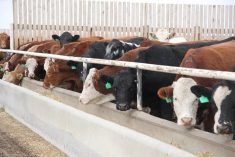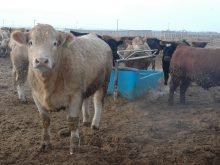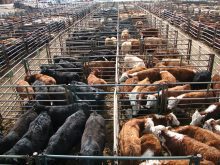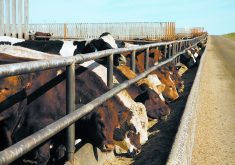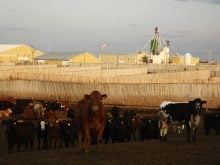This cattle market information is selected from the weekly report from Canfax, a division of the Canadian Cattlemen’s Association. More market information, analysis and statistics are available by becoming a Canfax subscriber by calling 403-275-5110 or at www.canfax.ca.
Canadian fed cattle rally
The Canfax fed steer weighted average was $176.95 per hundredweight, up $2.18, while heifers were $176.28, up $2.54.
Live bids were offered, but all the week’s sales were dressed, mostly at $295 delivered.
Read Also

Saskatchewan looks to expand trade in Indonesia
Saskatchewan intends to increase its agricultural partnership with Indonesia.
Larger lots fetched premium prices.
The Canadian dollar fell below US71 cents, encouraging American buyer interest, but few, if any, cattle went south. The cash-to-futures basis weakened to -$11.77, $2 lower than the January historical five year average.
Turmoil in China’s stock market spread to other equity markets and spilled into the Chicago cattle futures trade, pressuring futures sharply lower late in the week.
The chaos caused sellers to hold a fair amount of the offering over to the following week, hoping for a rebound in the futures.
U.S. cash fed cattle in the southern United States sold mostly at US$133 per cwt., down $1-$2 from the previous week.
Dressed trade in the northern U.S. was steady to $2 lower with sales from $210-$212.
Holiday week slaughter to Dec. 26 in Western Canada was light at 24,287 head. Slaughter for the year was down six percent.
Weekly exports to Dec. 26 eased to 3,837. They were down 45 percent for the year.
Market-ready supplies are expected to tighten a bit as colder, stormy weather hits U.S. feedlots.
The U.S. cash price might rally if the China jitters calm. If so, more U.S. cattle buyers might come shopping in Canada.
Non-fed market stronger
Butcher bulls traded C$6 per cwt. higher compared to the end of December, while butcher cows were $2-$3 higher.
D1, D2 cows ranged $100-$113 to average $106.50, and D3 ranged $80-$105 to average $94.
More cows often go to market early in the year because slaughter and export volumes tend to peak in January.
The lowest prices of the first half of the year for D1, D2 cows are normally set in January. Prices then rally into February.
Cows are anticipated to trade steady to slightly higher over the next couple weeks.
Feeders stronger
Stronger Chicago live cattle futures early last week and the weaker Canadian dollar set the stage for higher calf and feeder prices.
Prices were $20-$30 per cwt. higher from the end of December.
Feeders heavier than 800 pounds rose with 850 lb. and 950 lb. steers moving back to price levels not seen since mid-November.
Traditionally, 850 lb. steers bottom in January, but that likely won’t be the case this year.
Steers 850 lb. that are bought now will be ready for the June fed market, and fed basis levels for June are historically strong.
However, fed basis levels might weaken into the second half of 2016, which will reduce feedlots’ buying power.
In December, many producers expected prices to fall to the lowest levels seen since the summer of 2014 and decided to carry cattle over.
That gamble looks to have paid off because the market has strengthened.
Beef stronger
The U.S. boxed beef market started 2016 with a sharp rally boosted by tight supplies after the holidays and higher cattle prices early in the week.
Choice surged US$18 per cwt., and Select rose $18.67.
Canadian boxed beef to Dec 25 saw AAA up C$21.57 per cwt. and AA up $15.93.
The AAA-Choice spread widened sharply to +$13 per cwt. from -$15 but is expected to narrow again as the U.S. market recovers.
The Montreal wholesale price will no longer be reported because trade is inadequate.


